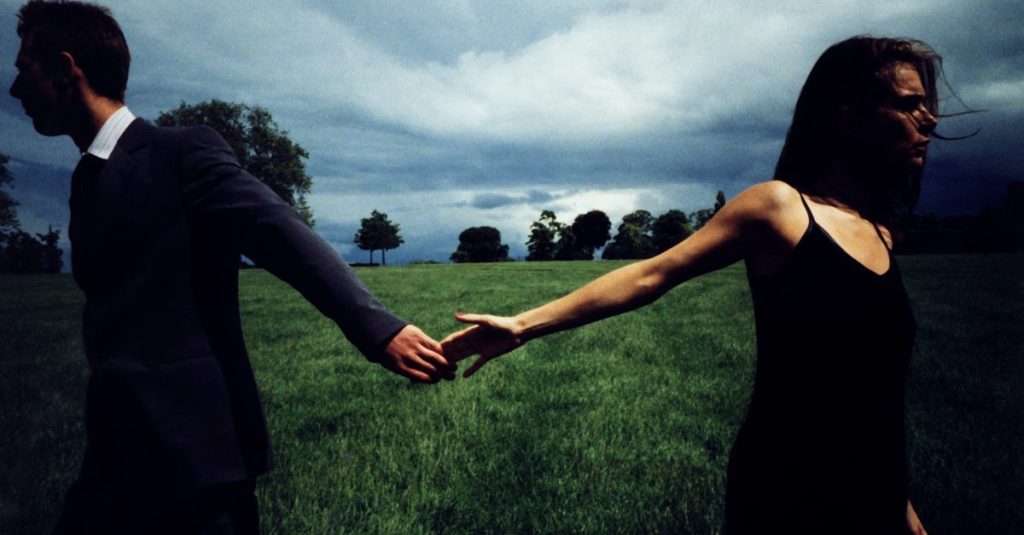The Gottman Institute, which was co-founded by doctors John and Julie Gottman, provided a research-based approach to relationships.
Drawing from over 40 years of research data, they categorized couples into five different types: three “happy couple types” and two “unhappy couple types.” Each couple has its own way of navigating relationship issues and working toward resolution.
According to the Gottman Institute and its extensive research, here are the five main couple types—and how they operate during periods of conflict.
1. Conflict-Avoiding
The Gottman Institute defines conflict-avoiding couples as those who “minimize persuasion attempts and instead emphasize their areas of common ground.” Oftentimes, they avoid expressing their needs and simply celebrate their relationship.
While this might sound like an unhealthy dynamic, these couples don’t avoid difficult yet necessary conversations. They merely prioritize connection over conflict resolution.
“An important aspect about conflict-avoiding couples is the balance between independence and interdependence,” The Gottman Institute states on its website. “They have clear boundaries and are separate people with separate interests.”
Of course, these couples still depend on each other in some ways. They just expect less from one another, gaining fulfillment from a variety of areas.
That begs the question…does this dynamic risk pent-up resentment or emotional distance? Perhaps. However, when executed properly, these couples can lead parallel yet harmonious lives.
2. Volatile
“Volatile” isn’t a word I’d use to describe a healthy relationship, but according to the Gottman Institute, there’s a positive side to volatile couples.
“Almost the exact opposite of conflict avoiders, volatile couples are intensely emotional. During a conflict discussion, they begin persuasion immediately, and they stick to it throughout the discussion,” The Gottman Institute writes on its website. “Their debating is characterized by a lot of laughter, shared amusement, and humor. They seem to love to debate and argue, but they are not disrespectful and insulting.”
Volatile couples might have more arguments than other couples, but these conversations are often filled with mutual love and respect, as well as the desire to deepen and strengthen the connection. Volatile couples are as authentic as they come, but they require a bit more patience, balance, and stability to ensure a sustainable connection.

3. Validating
Validating couples are like the happy medium between conflict-avoiding and volatile couples. Conversations are calm, grounded, and supportive, allowing each partner to express themselves without judgment or heightened emotions.
This seems like the ideal blend to me. These couples don’t avoid conflict, but they don’t stew in it either. Rather, they confront issues head-on with empathy, validation, compromise, and calmness.
4. Hostile
As you can probably tell by the name, hostile couples are one of the two unhappy couple types.
We all know a pair like this, or perhaps we’ve been part of one: one person is highly critical while the other is reactive and defensive. Or perhaps both individuals share each of those qualities.
In this dynamic, the couple fails to consider each other’s thoughts and feelings, and arguments are laced with contempt.
“During conflict, each partner reiterated their own perspective, and no support or understanding appeared between partners for either person’s point of view,” The Gottman Institute writes on its website.
Hostile couples are bound to misunderstand each other, which can lead to disconnect and resentment.
5. Hostile-Detached
The hostile-detached couple is similar to the hostile couple, except there’s far more emotional detachment and loneliness involved. According to The Gottman Institute, these couples are considered unhappy and likely to divorce—and it’s easy to see why.
“These couples are like two armies engaged in a mutually frustrating and lonely standoff with no clear victor, only a stalemate,” the Gottmans explain on their website.
The post The 5 Types of Couples—and What They Reveal About Your Relationship’s Future appeared first on VICE.




